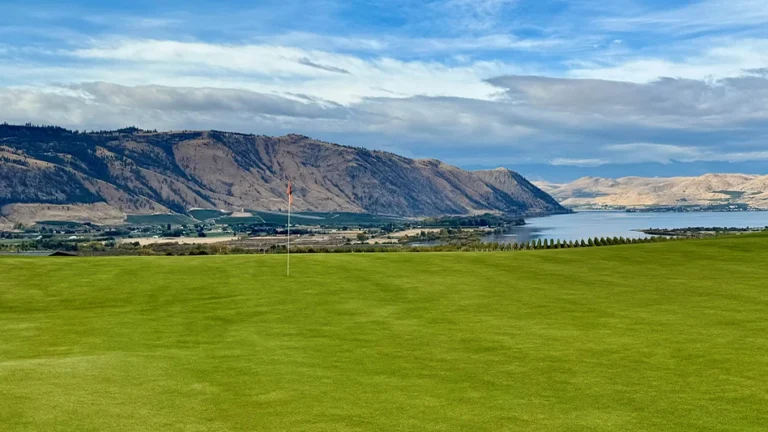Gamble Sands in Brewster, Washington, will open its new David McLay Kidd-designed course, Scarecrow, in August 2025.
This story was originally reported by Golf Course Architecture magazine.
The new 6,900-yard layout will join the resort’s 7,200-yard Sands course, which opened for play in 2014, and the 14-hole QuickSands short course, which opened in 2021, both designed by Kidd.

Scarecrow is located near apple and cherry orchards that Gamble Sands owners, the Gebbers family, also own.
Kidd and design associate Nick Schaan laid out the course, which overlooks the Columbia River Valley, over rolling terrain and ridgelines. “This part of the site has higher, peakier spots that were more akin to classic sand dune, sandhills type blowouts and we exposed some of those, we preserved some of those,” said Schaan. “The piece of land – for the new course – is just smaller. If you draw a circle around the first course, it sits on 350-500 acres depending on how you draw it.
“This new course sits on about 300 acres, and so it’s a lot more compact, things are a bit closer together. But the fairways are still wide – in some cases, they are even wider than the original Sands course. The whole golf course kind of climbs over this knob, through a saddle, up another knob, through a valley – you see a lot more of the river, hole after hole after hole. And you see a lot more golf that you’re not playing across the site.”
The greens on Scarecrow are smaller than those on the Sands. “Once we got out onto the site and were walking around and looking at the tightness and the steepness of the contours versus the first course’s greens, the greens needed to be smaller to fit into the spaces that made good green sites,” said Schaan. “There’s still tons of turf around the actual cuppable areas because all the steeper contours that you can’t count as ‘green’ you can still use to roll a ball around. It’s different but the playability is the same as the Sands course.”
The bunkering on Scarecrow differs from the large expanses of sand on the Sands course. “Gamble Sands has this big, open-expanse sandy character to it – it’s so massive that if we replicated that again in the same fashion, that alone would make the golf courses look similar,” said Schaan. “But doing that in the steeper terrain becomes cumbersome, so the sand areas are broken into chunks and smaller pieces and compositions of clusters instead of these massive sand areas.”


